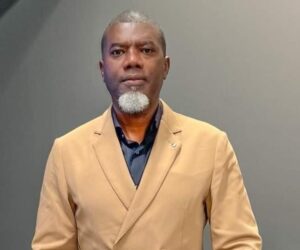The dispute between the Academic Staff Union of Universities (ASUU) and the federal government, rooted in a 2009 agreement promising better funding, conditions of service, allowances, revitalization of public universities, and institutional autonomy, remains unresolved. Fifteen years on, most promises remain unfulfilled. Repeated strikes have disrupted academic calendars, leaving students stranded and parents frustrated. Issues include poor funding, withheld salaries, and clashes over payment platforms like the Integrated Personnel and Payroll Information System Department (IPPIS) and the University Transparency and Accountability Solution (UTAS), alongside ASUU’s demand for 26% of the national budget for education. While ASUU insists it is fighting to save public universities, students ultimately bear the heaviest burden of the stalemate. In this interview with Trust TV, ASUU’s National President, Chris Piwuna, spoke on the issues.
What were the key provisions of the 2009 ASUU–FG agreement, and why, 15 years later, have they remained unfulfilled?
SPONSOR AD
Thank you for your interest in these issues. And it’s not just an ASUU issue, it’s an issue for Nigerians, it’s an issue for students, it’s an issue of our future as a country, as we strive to develop and make progress as a nation.
You just reported the president in Brazil. No matter what he signs in Brazil, no matter the agreements they sign in Brazil, if this country does not develop the manpower that is needed to actualize all these things that he is signing in Brazil, then it will be useless. He talked about corruption. How can you eliminate corruption in society? It’s by education—educating people, teaching them principles to live by, that in this society, there are rules, and we need to keep to those rules. That we’re better off if we live decent, honest, transparent lives than stealing from the public purse. That starts with education; you need to imbibe those values in students, in people.
So, there is a need for the government to pay attention to education. It is that need that ASUU has realized, and we have felt over the years that the government has not paid enough attention to education to allow us to develop. In this day and age, if your education is not sound, there’s no way you’re going to develop. Look at the pace some African countries are making progress.
Without education, where would we be? And so, we said, look, our educational sector, particularly the public universities, we are not at speed.
We need more funding in the system. And so, this 2009 agreement talks about funding for public education. But let’s not even just generalize the issue of funding. We identified specific means, ways in which education could be funded in Nigeria. We talked about the budgetary allocation that you raised—the 26%. And we realized that there are so many competing demands on the government. And so, even that 26% is not what we’re talking about.
We are talking about, for a start, 15% budgetary allocation to education. And in that 15%, we have not even asked the government to give 15% budget allocation to education in one fell swoop. No. We said, can we gradually increase our budget yearly until we hit that 15%? So, let’s say this next year, 2026, the government allocates 2% more than they did in 2025. In 2027, another 2%. In 2029, another 2%. Not until we hit that, but there should be a progressive increase in the budgetary allocation to education. So, we’ve shown understanding. We’ve told the government how to do it. We have also told the government that this envelope system of budgeting does not work with our universities. So, you have a budgetary allocation. What you see in the envelope is what you use. That’s the system now. We’re saying budgetary allocation to universities should be based on the needs of those universities.
We have also suggested to the government that there are ways in which we can increase funding for education. Phone calls, tax on phone calls, getting a consolidated account, and keeping a certain amount of money. We have specified to the government how funding can be done. That is one. Number two, in the 2009 agreement, we also talked about conditions of service. Our salaries have literally remained stagnant since the 2009 agreement was signed about 16 years ago. And this does not only concern academic staff; others are complaining about the same thing. It’s the same thing. And so, there was a need for the government to look at our conditions of service in a very comprehensive way. Because what’s the point if you give us one and you don’t give others, or you don’t give some improvement in their pay? So, we have been pushing the government to ensure that our conditions of service improve. In addition to that, the 2009 agreement talks about university autonomy and academic freedom.

Look at it. If you have gone through the universities—anybody—academic freedom, what is it that the government is saying they won’t sign? Tell me. What is academic freedom? All of us know, if I decide as a researcher in political science to write that the way our democracy is working is not right, I should have the freedom to do that. That has always been there. So, what is their fear about academic freedom? If I decide, if the universities are talking about autonomy, the government will always tell you that, oh, they are giving money—he who pays the piper dictates the tune. That is because they are giving money to the system; they should determine. That is just an aspect of autonomy. The agreement talks about governance issues in our universities. The university works through the committee system. So, our autonomy will ensure that these practices are further sustained and deepened. What is their fear about that kind of autonomy?
So, this issue about the 2009 agreement is, to be honest with you, just a lack of sincerity and lack of seriousness on the part of the government. If the government is sincere, they will look at these issues and decide that these things make sense. All these things that I’ve said, what is it that the government is afraid of in signing that agreement? Is it that they don’t want to improve our salaries? Is that it? Is it that they don’t want to fund the universities’ public education? Is that what the problem is? So, I think they’re just not giving education the attention it deserves.
As a union of intellectuals, we have decided that we’ll continue to hold them accountable. We’ll continue to challenge them. We’ll continue to put these issues on the front burner until they are addressed.
There has been a lot of back and forth between ASUU and the federal government over the years, and then each time ASUU comes out to protest, we always go back to the 2009 agreement. Now, let’s bring it to the present. Beyond that old agreement, what exactly is on the table today? I mean, what is the main problem ASUU still has with the government right now?
This question is quite connected to the previous one that you asked. And so, let me say it this way. When Nigerians hear “2009 agreement,” the impression being created is that there is a document that has been on the shelf since 2009, and nothing has been done to it. That’s not the case. That document had been taken off the shelf in 2017. So, the government set up a committee headed by Babalakin. We sat and reviewed that document with Babalakin. We didn’t reach an agreement. The government set up another committee headed by Professor Munzali Jibril. Professor Jibril sat with us. We looked at the 2009 agreement and reviewed it and agreed with them on a document to go back to the government. Government did not act on it. Government again set up another committee headed by the late Professor Nimi Briggs. We looked at the Munzali Jibril document, page by page, item by item, and agreed on what needed to be modified in that agreement.
We have a draft agreement with Professor Nimi Briggs. It was left for the government side to take it back to their principals. And we go back to our people and say, This is what we’ve agreed to. We have done that on our side. We have considered the document. The government didn’t get back to us. This government now came into power and set up the Yahaya Ali Ahmed committee. We have sat with Alhaji Yayale Ahmed, one of the best technocrats, one must say, that we have today in this country. Alhaji Yayale Ahmed is familiar with ASUU’s documents from 1991. There’s hardly any agreement that ASUU had signed with government that Alhaji Yayale Ahmed is not familiar with, because he had worked as a permanent secretary in the Federal Ministry of Education for a very long time. We sat with him. We agreed on another draft agreement as of December 2024—that is last year. We have concluded with Alhaji Yayale Ahmed. Government has refused to look, agree on certain terms of the agreement. So that is where we are with the 2009 agreement. It is not an old document that was signed in 2009 that we’re still talking about. It has been reviewed over and over again, and the government has not acted on it. And that’s where the problem is.
Why do you think the government has yet to act on it?
Lack of seriousness, lack of sincerity. They are not serious about education. They want to run education the way they want to run it. They don’t want to listen to anybody. In fact, our feeling is that the government wants Nigerian universities to go the way Nigerian public primary schools have gone. They want Nigerian universities to go the way public secondary schools have gone. You are aware, you are a Nigerian, you are aware that today there’s hardly anybody among us who is sending his child to public primary schools because they are virtually carcasses. So, every town now has private primary schools on the streets, every street and every Angwa, as we say in the North, each body has a private primary school. That is the way they want Nigerian universities to go. And to us, that can be the best explanation why they are not paying attention to university education, because they want to privatize everything.
You mentioned the back and forth that you’ve had with the federal government on renegotiations, sittings, committees, and meetings. But how has ASUU’s approach to these negotiations and the consistent industrial actions shaped the outcomes since 2009? Because, so far, we’ve seen that due to the industrial actions—the strikes or protests—that have been going on, ASUU is not satisfied. So, with these negotiations, do you mean that nothing has been looked at in the agreement and nothing has been done, not even partially?
In that agreement, we have always made ourselves available to government. We have never hesitated for a day to attend a meeting. We all stay outside Abuja—all the offices of the union, except one. Anytime they call us, we come from everywhere to meet with them. So, dialogue has always been our first option. In fact, our standing in ASUU is that if the devil—the devil that we know—if the devil can come in human form and sit at the table over these issues, we’re ready to discuss with him.
Are you saying that none of the items in the agreement has been implemented?
Well, there’s no part of the agreement that has been enforced. We have agreed with the government team on each of those items. We have sent the document back. We have highlighted the items here with you: funding, conditions of service, academic freedom, university autonomy, review of some laws of JAMB, NUC. We have agreed with the government team.
What is left is for the government team to go back to government and say, “Look, this is the document we have agreed with ASUU. What do you think?” And then the government will tell them how they feel about those things and get back to us. There is no disagreement between us and the government side on each of these items. The way collective bargaining works is that once you get to that point of agreeing on these items, the other side will go back to their principals. For the Yayale Ahmed committee, their principal is the president, the Minister of Education, and the federal government. They will go back and say, “Look, these are the things we’ve agreed with ASUU. Do you accept them, so we can go back to ASUU and tell them you’ve accepted this, or do you reject them?” That is where we are.
So, on the items, we have agreed with them. It’s just for them to get back to us on what their principals have agreed to. That’s where we are.
You mentioned salaries, and we all know that it is one of the major requests that ASUU is asking from the federal government: salary, allowances, and the whole lecturers’ welfare package. So, let’s talk about the welfare of lecturers themselves. Now, what is wrong with lecturers’ salaries and conditions at the moment? Is it really that critical?
Well, I think the one way you can look at this issue of salary is to look at this Japa syndrome. People emigrate; they leave the country, they look for better conditions of service elsewhere. I’m a medical doctor in the university teaching hospital where I’ve worked. In the last two years, at least up to 20 consultants—doctors at the consultant level—have left this country. As a head of department, hardly three months will pass without me giving a reference letter to a resident doctor who wants to relocate out of this country. It’s the same thing that’s happening to lecturers.
If everybody is leaving because of the salary, one of the conditions of service—salary—why can’t you improve the salary and retain the staff? African countries are taking our lecturers. Go to Uganda today. I can assure you that you will not find fewer than 20 Nigerians who are lecturers, sometimes in one university. Ghana is paying more than us. Uganda is paying more than us. Kenya is paying more than us. Even Liberia is paying more than us. Why do you want our lecturers to stay? Salaries are critical if we want to retain our staff.
So, it’s not a surprise that our universities rank very low when it comes to global rankings. Out of the 333 universities in Nigeria, we have fewer than five in the top 1,000 in Africa—not to talk about the world: Ibadan, Ife, Nsukka, I think Zaria or Ilorin. Very few. And it’s because our pay is low, so people are leaving. Part of it is because our facilities are not being upgraded, so people are not satisfied with the conditions of service.
I always cite this example: go to any public university in Nigeria today and ask female lecturers whether they are comfortable using any restroom in the university. Can you imagine? That is the standard. That is how our universities are. So, if I’m a lecturer and I’m a woman, I’ll drive back home before I come back to the university.
You remove the subsidy on fuel, you drive home, and you come back with the current salary that you’re getting. So, you see, unless the government is willing to look at these issues and address them, we’ll continue to have problems. We’ll always have this issue of strikes and threats of strike, and the instability in our system will continue. And as the instability continues, all of us are suffering. All of us are suffering.
Who told you that lecturers are happy with strikes? Some of the students who suffer from the strike—they’re our children. They leave our homes to go to lectures. Our wives are doing master’s degrees. They are doing PhDs. We are all affected. We’re not happy with it, but we have to do what we have to do to correct the system.
What are the long-term impacts of the current ASUU strikes on Nigeria’s educational system?
Of course, our quality of education will continue to go down. Our ranking—whether in Africa or globally—will continue to go down. Staff will be demoralised. For as long as they are demoralised, the system doesn’t run efficiently. We’ll continue to have students who are half-baked when they graduate, and there is that moral, psychological burden that everybody who works in the system carries, because we know that it is not what it is supposed to be.
This is not the way the system should run, and we just want to urge everybody—you members of the press—to help us be our advocates. Not advocates for ASUU—that’s not what we’re asking—but advocates for a better educational system in this country. And you are doing it. This interview is one of those opportunities you’ve given us to highlight these issues.
Traditional rulers, religious leaders, parents, teachers, associations—everybody should make this issue their issue, because it is about our future. It is about our country. It’s not about ASUU. ASUU is just fighting for a better system. Yes, we talk about our salaries, and you could say, oh, our salaries are ours, but unless we are also incentivised in the system, we’re not going to give our best.








